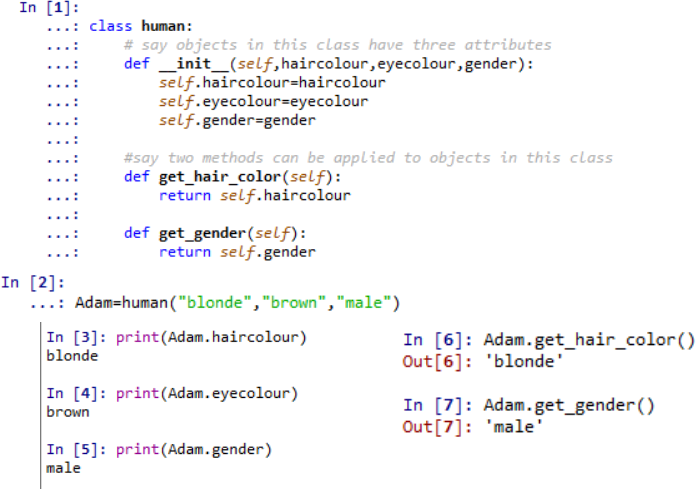IC208 - Programming for Finance Seminar 3
Hello, dear friend, you can consult us at any time if you have any questions, add WeChat: daixieit
IC208 - Programming for Finance
Seminar 3 – Solutions
Q1) Given the following functionfun1() How to call the function calls?
|
def fun1(name, age):
print(name, age) |
a) fun1(name=’Emma’, age=23)
b) fun1(name=’Emma’, 23)
c) fun1(‘Emma’, 23)
d) fun1(text=‘Emma’, age=23)
Ans: a+c
Q2) What is the output of following code?
def outerFun(a, b):
def innerFun(c, d):
return c + d
return innerFun(a, b)
res = outerFun(5, 10)
print(res)
a) 15
b) Error
c) 15.0
d) (5,10)
Ans: a
Q3) Select which true for Python function
a) A function is a code block that only executes when it is called.
b) Python function can only be called once.
c) A function only executes when it is called and we can reuse it in a program
d) Python doesn’t support nested function
Ans: a + c
Q4) What is the output of following code?
def add(a, b):
return a+5, b+5
result = add(3, 2)
print(result)
a) 15
b) (8,7)
c) 8
d) Error
Ans: b
Q5) What is the output when following code is executed?
func = lambda x: return x
print(func(2))
a) 2.0
b) 2
c) x
d) error
Ans: d we don’t use return in lambda the correct code is
func = lambda x: x
print(func(2))
Q6) Define a class named ‘human’ with 03 attributes and 02 methods, which can be applied on the class ‘human’ . Assign Adam as an object of the ‘human’ class and apply the methods on Adam.
Ans:

Q7) What is the output when following statement is executed?
a = "Hello ICMA!"
print(a.lower())
Ans: ‘hello icma!’
Q8) What is the output when following statement is executed?
a = "Hello ICMA!"
print(a.upper())
Ans: ‘HELLO ICMA!’
Q9) What is the output when following statement is executed?
a = "Hello ICMA!"
print(a.split())
Ans: [‘Hello’,’ICMA!’]
Q10) What is the output when following statement is executed?
my_list = [‘I’,’love’,’coding’]
def func(x):
return ‘’ .join(x)
func(my_list)
how to write this function in lambda
Ans: ‘Ilovecoding’
func = lambda x: ''.join(x)
func(my_list)
Q11) What is the output when following statement is executed?
age = 20
txt = "My name is Moso, I am " + age
print(txt)
Ans:
My name is Moso, I am 20
Q12) What is the output when following statement is executed?
age = 20
txt = "My name is Moso, I am {}. I love ICMA.".format(age)
print(txt)
Ans:
My name is Moso, I am 20. I love ICMA.
Q13) What is the output when following statement is executed?
names = [ 'John', 'Moso', 'Harma']
ages = [22, 20, 21]
for i in range(len(names)):
txt = "My name is {}, I am {}. I love ICMA.".format(names[i],ages[i])
print(txt)
Ans:
My name is John, I am 22. I love ICMA.
My name is Moso, I am 20. I love ICMA.
My name is Harma, I am 21. I love ICMA.
Q14) What is the output when following statement is executed?
my_dictionary = {'John': 22, 'Moso': 20, 'Harma': 21}
for key, value in my_dictionary.items():
txt = "My name is {}, I am {}. I love ICMA.".format(key,value)
print(txt)
Ans:
My name is John, I am 22. I love ICMA.
My name is Moso, I am 20. I love ICMA.
My name is Harma, I am 21. I love ICMA.
2023-03-06